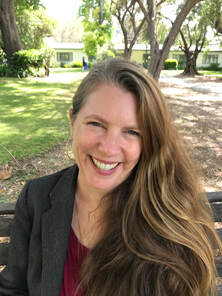NPI Conferences 2023-2024
Upcoming Conferences
Past conferences in 2022-2023
You may purchase recordings of recent conferences below if available.
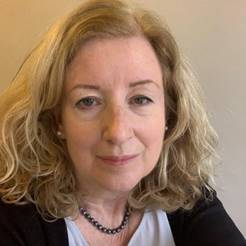
A Couple State of Mind
Dr. Mary Morgan
Saturday, May 11, 2024
9:00 am – 1:30 pm PDT
Online Conference
4 CE Credits
|
|
|
|

Gender, race, and sexuality through the resource of traumatophilia
Avgi Saketopoulou, Psy.D.
Saturday, March 2nd, 2024, 9:00 am – 4:30 pm
Hybrid Conference
ASSEMBLY at Tustin the FLIGHT
Available on Zoom too
6 CE Credits
|
|
|
|
Psychedelics in Psychoanalysis
Megan Rundel, Ph.D.
Saturday, November 11th, 2023, 9:00 am – 1:30 pm PT
ASSEMBLY at Flight
1715 Flight Wy Ste 100, Tustin, CA 92782
& on ZOOM
4 CE Credits
|
|
|
|
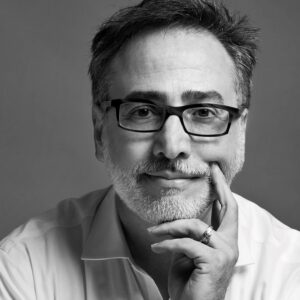
No Recording Available
The Return of Culture to Psychoanalysis:
Reflections on Psychoanalytic Training and New Directions
Christopher Christian, Ph.D.
Saturday, October 7th, 2023, 10:00 am – 12:00 pm PT
This course is offered on ZOOM
|
|
|
|

Cross Cultural Encounters: Bridging Worlds of Difference
newly mandated class
|
|
|
|
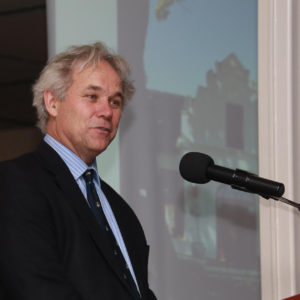
The Dreaming Brain: Implications for Psychoanalysis
Presenter: Dr. Mark Solms
Saturday March 18th, 2023, 9am- 1:20pm PST
Professor Mark Solms was born in 1961. He was educated at Pretoria Boys’ School and the University of the Witwatersrand, Johannesburg. He emigrated to England in 1988. There he worked at University College London (Dept of Psychology) and the Royal London Hospital (Dept of Neurosurgery) while he trained at the Institute of Psychoanalysis. He returned to South Africa in 2002, and now holds the Chair of Neuropsychology at the Neuroscience Institute of the University of Cape Town and Groote Schuur Hospital. His rating by the National Research Foundation is ‘A1’ and he is a Member of the Academy of Science of South Africa. He has received numerous prizes and honours, such as the Sigourney Prize, the IPA’s Outstanding Scientific Achievement Award and Honorary Fellowship of the American College of Psychiatrists. He is Training Director of the South African Psychoanalytical Association, Director of the Science Dept of the American Psychoanalytic Association and Research Chair of the International Psychoanalytical Association. He has published 350 articles in both neuroscientific and psychoanalytic journals, and he has authored eight books. The Brain and the Inner World was translated into 13 languages. His collected papers were published recently as The Feeling Brain. His latest book, The Hidden Spring, appeared in early 2021. He is the editor and translator of the forthcoming Revised Standard Edition of the Complete Psychological Works of Sigmund Freud (24 vols) and Complete Neuroscientific Works of Sigmund Freud (4 vols)
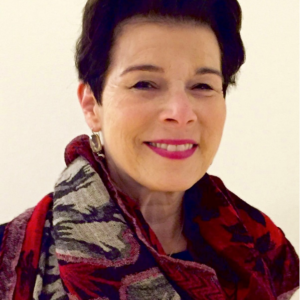
Oedipus Wrecks: Infidelity as Manic Defense
Presenter: Dr. Shelley Nathans
Saturday February 25th, 2023, 9:00am – 4:20 pm
Tustin Library Multi Purpose Room, 345 E. Main Street Tustin, 92780 & on ZOOM
The paths leading to infidelity in a couple’s relationship are manifold and diverse; there is no singular cause, no simple, linear route. Using a contemporary Kleinian framework and a case example, Shelley Nathans, Ph.D. will present her paper “Infidelity as Manic Defense”, in which she describes some of the important theoretical issues relevant to understanding affairs. The focus of this paper is on the problems that one or both of the partners in a couple may have with mourning past or impending loss, and the consequent infidelity that may result from a manic attempt to replace depression or psychic pain with excitement. A developmental orientation will be used to delineate a range of psychological dilemmas that contribute to infidelity, including claustrophobic anxieties, difficulties with mourning past or impending loss, Oedipal problems and separation issues. Dr. Nathans will discuss the challenges of working with couples struggling with the impact of an affair on their relationship and she will describe some of the complex technical issues in such cases.
Dr. Shelley Nathans, Ph.D. is a clinical psychologist with 35 years of experience as an individual and couple psychotherapist. She is a member of the teaching faculty at the California Pacific Medical Center in the Department of Psychiatry, The Psychoanalytic Couple Psychotherapy Group, and The Psychoanalytic Institute of Northern California. She has completed the Tavistock Center for Couple Relations Advanced Training in Psychoanalytic Psychotherapy and is on the International Advisory Board for the journal, Psychoanalytic Couple and Family Psychoanalysis. She is the director and producer of the film, Robert Wallerstein: 65 Years at the Center of Psychoanalysis. She has published in Psychoanalytic Dialogues, Couple and Family Psychoanalysis, and fort da, and she is the co-editor (with Milton Schaefer) of the book, Couples on the Couch: Psychoanalytic Couple Psychotherapy and the Tavistock Model (Routledge, 2017).
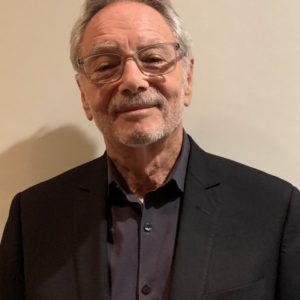
Masculinity And Its Discontents: A Clinical Perspective On the Male Psyche and Manhood’s Inherent Tensions
Presenter: Michael J. Diamond, Ph.D., FIPA
Saturday, January 28, 2023, 10:30 AM – 1:45 PM PST
ABOUT THIS TALK
This clinically-oriented conference offers a contemporary psychoanalytic perspective on male gender that rejects outdated aspects of binary reasoning to view male identity as an ongoing dynamic process that incorporates rather than rejects what tends to be regarded as “feminine.” Drawing upon Michael Diamond’s recently published book by Routledge, Masculinity and Its Discontents: The Male Psyche and the Inherent Tensions of Maturing Manhoodthat describes the complex developmental struggle that men must undergo to build their identities throughout their life, this workshop presents ways of understanding male patients and their efforts to navigate their primordial vulnerability and the tenuous nature of masculinity. Clinical material is used to help psychoanalysts, psychotherapists and other mental health practitioners further their clinical understanding and technical repertoire. Participants will have an opportunity to question the presenter and clarify the ideas throughout the session.
Michael J. Diamond is a Training and Supervising Analyst, Los Angeles Institute and Society for Psychoanalytic Studies. He has authored over ninety articles and chapters as well as five books, including Ruptures in the American Psyche: Containing Destructive Populism in Perilous Times, My Father Before Me: How Fathers and Sons Influence Each Other Throughout Their Lives, and The Second Century of Psychoanalysis: Evolving Perspectives on Therapeutic Action. He is in private practice in Los Angeles, while remaining active in teaching, supervising, and writing.
[Note: Michael Diamond’s book, Masculinity and Its Discontents: The Male Psyche and the Inherent Tensions of Maturing Manhood, is available for purchase directly from the Routledge website at: https://www.routledge.com].
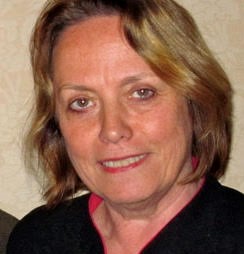
Two visions of Psychoanalysis in Social Crisis
Presenter: Dr. Adrienne Harris
October 8th, 2022, 9-4:20 pm PST
About this talk
This program consists of two parts:
Part 1 – The Pandemic as an apres coup
Part 2 – The work of Sandor Ferenczi and the Hungarian Psychoanalytic Society
The work of Ferenczi, the Hungarian Psychoanalytic world and the Unwelcome Child. This lecture will contextualize Ferenczi’s life and work in the context of the Hungarian Psychoanalytic Movement and in the context of political and social unrest.
Dr. Adrienne Harris, Ph.D. is Faculty and Supervisor at New York University Postdoctoral Program in Psychotherapy and Psychoanalysis. She is on the faculty and is a supervisor at the Psychoanalytic Institute of Northern California. She is a member and Training Analyst in the IPA. She is an Editor at Psychoanalytic Dialogues, and Studies In Gender and Sexuality. In 2009, She, Lewis Aron, and Jeremy Safron established the Sandor Ferenczi Center at the New School University. She, Eyal Rozmarin and Steven Kuchuck, co-edit the Book Series Relational Perspectives in Psychoanalysis. She is an editor of the IPA ejournal : Psychoanalysis.Today
Past conferences in 2021-2022



Social Psychoanalysis and an Ethic of Repair
Presenters: Dr. Lynne Layton, Dr. Medria Connolly, and Dr. Bryan Nichols
March 5th, 2022, 9-4pm, ZOOM. Those who were unable to attend the event may purchase a recording-only ticket option, and will be sent a link to the recording afterwards.
About this lecture
The program begins with a talk on what a social psychoanalysis might look like in the clinic and draws on some earlier psychoanalysts’ concepts that have connected the social world and the psychic world without reducing one to the other. Exploring identity formation in cultural contexts and within various power hierarchies, Dr. Layton introduces the concept of normative unconscious processes, a concept connecting the psychic and the social that specifically addresses the ways that racism, heterosexism, classism and other social inequalities are unconsciously enacted in the clinic and culture. We will then explore how therapists can resist unconsciously replicating such cultural inequalities. We will then take up the ways cultural inequalities are unconsciously reproduced in the wider circles of contemporary institutional and sociocultural life. In this part of the program, Dr. Layton, Dr. Nichols, and Dr. Connolly discuss the psychological case for reparations for slavery and its afterlives. Our conversations here, too, explore how we, as citizens and therapists, both unconsciously replicate and can resist replicating harmful, unequal relations. We will think together about how to address the places in our different subjective and communal worlds where harm has been done–and engage together on how to make repair.
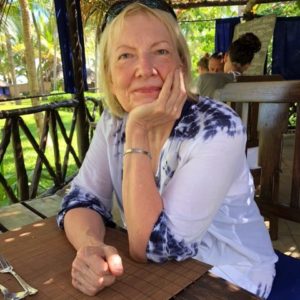
When Secrets Emerge in Psychotherapy: New Perspectives on The Body, Somatic Countertransference and Self-Care in the Treatment of Eating Disorders
Presenter: Kathryn J. Zerbe, MD, FABP, FAED
January 29th, 2022 , 9 – 1:15pm, ZOOM. Those who were unable to attend the event may purchase a recording-only ticket option, and will be sent a link to the recording afterwards.
About this lecture
The body-mind relationship is receiving new attention in psychodynamic clinical work in the 21st century. In this presentation we will focus on the treatment of eating disorder patients as a key example of how the clinician addresses both the body and the mind in therapy. The countertransference impact on the therapist of treating a group of patients who keep secrets and the role this plays in the development of somatic (body) countertransference therapist will be demonstrated in clinical case examples. Emphasis will be placed on the therapist’s self-care and resilience when working with challenging and often refractory patients.
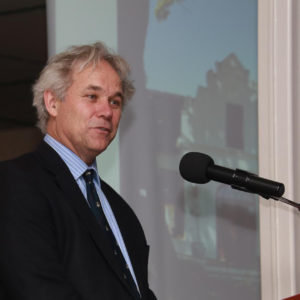
The Talking Cure: A Neuropsychoanalytic Perspective
Presenter: Mark Solms, Neuropsychologist and Psychoanalyst
September 25th, 2021, ZOOM. Those who were unable to attend the event may purchase a recording-only ticket option, and will be sent a link to the recording afterwards.
About this lecture
This three-part lecture by Mark Solms will describe some recent developments in the neurosciences which have implications for the theory and practice of psychoanalysis. The first lecture will focus on changes in our understanding of what is conscious and unconscious in the brain. This requires us to distinguish sharply between what Freud called the ‘id’ and the ‘system Unconscious’. The implications for the theory of ‘repression’ are particularly important clinically. The second lecture will focus on what Freud called ‘drive theory’. There are not two emotional drives at work in the brain but rather seven. Since these represent the basic emotional needs of the human being, the clinical implications of this new classification of the drives are immense. The third lecture focusses on these clinical implications, in a practical way. The main issues that will be discussed are (a) the mode of therapeutic action of the ‘talking cure’, (b) our understanding of ‘transference’ and (c) the importance of ‘working through’.
There was a 1.5 hour follow-up discussion group on October 16, 2021 led by Dr. Terence Ford.

Newport Psychoanalytic Institute is approved by the American Psychological Association to sponsor continuing education for psychologists. Newport Psychoanalytic Institute maintains responsibility for this program and its content.



